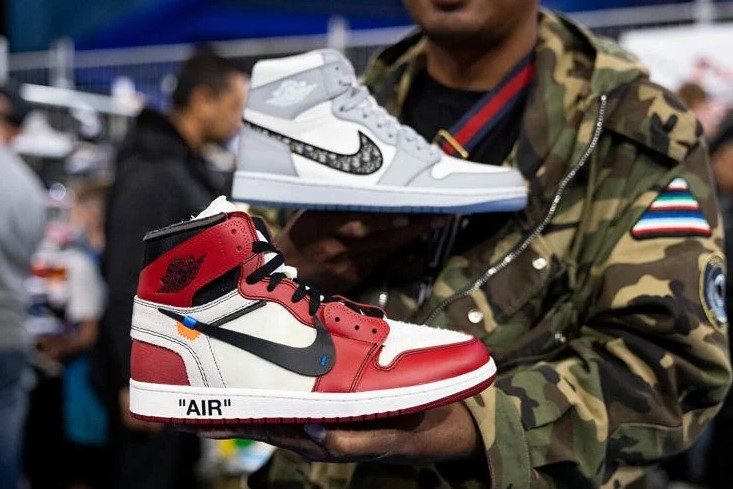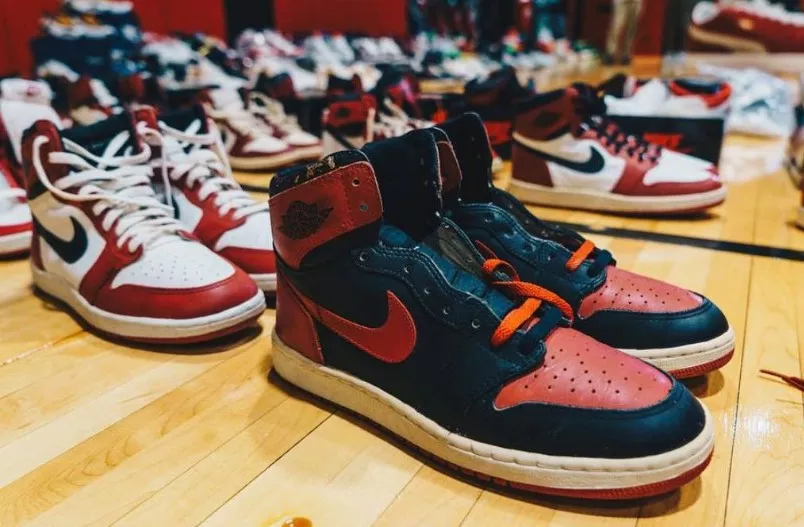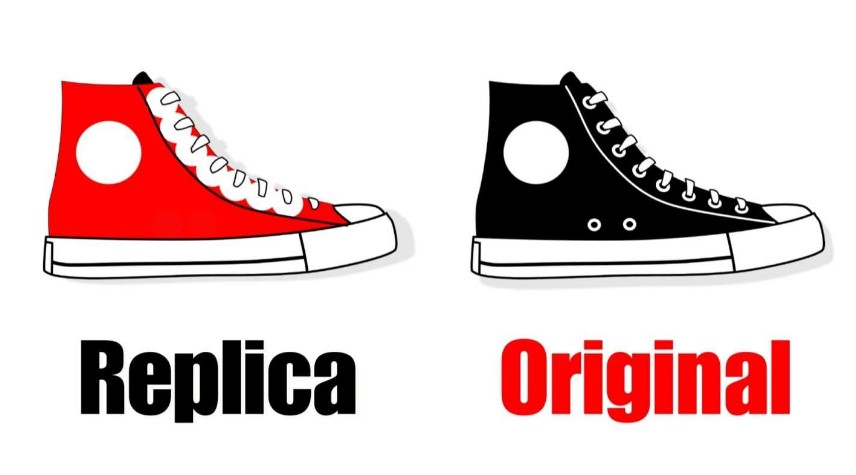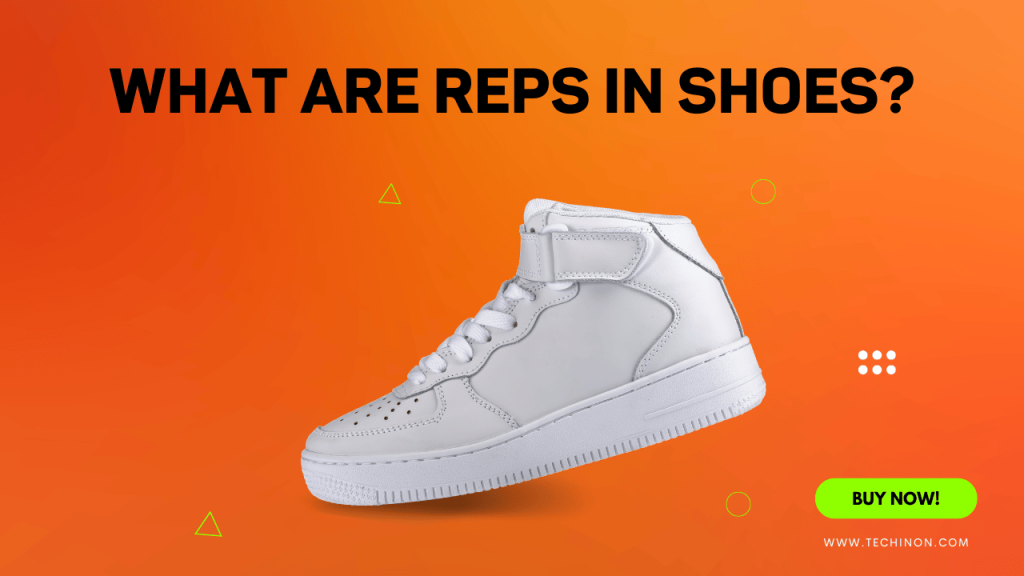You’ve probably heard the term ‘reps’ floating around the sneaker community and wondered what it refers to. In this extensive guide, we’ll explain what reps are in shoes, highlight the pros and cons, and answer some of your most pressing questions about this controversial topic. So let’s dive right in What are Reps in Shoes?.
What are Reps in Shoes

Reps, short for replicas, are essentially imitation versions of popular shoe designs. These products seek to emulate the appearance, style, and in some cases, even the quality of original branded footwear, ranging from sports sneakers to high-fashion shoes. Replicas come in various grades, from low-quality knockoffs to premium copies that are nearly indistinguishable from the real deal.
Are Replica Shoes Illegal?
Replica shoes, often referred to as counterfeit or knockoff footwear, raise legal concerns due to intellectual property infringement. They mimic designs of authentic brands without authorization, violating trademarks, copyrights, and patents. This undermines brand integrity, revenue streams, and consumer trust. Legal ramifications vary by jurisdiction; some countries impose fines or seize counterfeit goods, while others pursue criminal charges. Consumers should prioritize purchasing genuine products to support ethical commerce and avoid potential legal issues.
Where Can I Buy Replica Shoes?

Numerous online platforms and physical markets sell replica shoes. However, as a consumer, you must be cautious when purchasing replicas. Not all retailers are honest about the nature of their products, and the quality of replicas can vary significantly.
Replica Shoes
Undoubtedly, replica shoes are typically cheaper than their authentic counterparts, making them attractive to budget-conscious consumers. But is the reduced cost worth it? That depends on individual preferences and expectations. While some replicas might give you a similar aesthetic at a fraction of the price, they may not provide the same durability or comfort as the original.
Spotting Replica Shoes
Knowing how to differentiate between authentic and replica shoes is vital to avoid being duped. Key indicators can include disparities in material quality, stitching, logos, and packaging. Even the smallest details, like the font of the text on the shoebox, can reveal the truth.
Risks of Buying Replica Shoes
While the lower cost of replicas can be enticing, it’s essential to understand the potential risks. Apart from potentially supporting unethical businesses, buyers may face issues such as substandard quality, lack of warranty, or legal implications if they unknowingly resell counterfeit shoes.
Most Popular Replica Shoe Brands
The demand for replicas often mirrors the popularity of original brands. As of now, high-end brands like Nike, Adidas, and Balenciaga often have their designs replicated due to their high demand and exclusive releases.
Authentic vs. Replica
Does a replica shoe offer the same comfort as an original? Unfortunately, not always. While some high-grade replicas may come close, they often fall short of delivering the comfort, fit, and support that genuine branded shoes offer, especially those designed for specific sports activities.
Are Replica Shoes Worth It?
The value of replica shoes is a topic of debate that largely hinges on personal priorities and ethical considerations. Some argue that replica shoes democratize fashion, making trendy and high-end designs accessible to a broader audience. Conversely, others raise valid concerns about intellectual property theft, potential support for unethical labor practices, and the impact on brand value.
If your primary consideration is the aesthetic appeal of a popular shoe design without the hefty price tag, replicas might seem worth it. However, if durability, comfort, and ethical manufacturing are your priorities, investing in authentic shoes could be the better choice.
Original vs. Replica

There’s no denying that the quality of replicas can range from poor knockoffs to high-grade imitations. Lower-end replicas are often easy to identify, thanks to inferior materials, shoddy craftsmanship, and noticeable design inaccuracies.
However, top-tier replicas, also known as “1:1 replicas,” can be more difficult to distinguish from genuine products. These shoes aim to emulate every detail of the original shoe, using high-quality materials and precise craftsmanship. While they might seem tempting due to their resemblance to the real deal, it’s important to remember that these are still unauthorized copies, and buying them may entail certain ethical and legal issues.
Role of Technology
In the age of advanced technology, producing convincing replicas has become easier than ever. High-tech machinery and 3D modeling techniques allow counterfeiters to replicate intricate shoe designs with surprising accuracy.
Even so, technology also empowers consumers to make informed buying decisions. Online platforms offer resources and communities where consumers can share information, post real vs. fake comparisons, and report dubious sellers. Thus, while technology fuels the production of replica shoes, it also fosters awareness and transparency among consumers.
Ethical Aspect of Replica Shoes
The ethical implications of purchasing replica shoes cannot be overstated. When you buy replicas, you may inadvertently support businesses that infringe on intellectual property rights, exploit labor, and dodge quality standards and taxes.
Moreover, the production of counterfeit goods is often linked to organized crime, including money laundering and worker exploitation. Hence, while the lower price of replicas might seem attractive, the hidden costs can be significant.
FAQs
Q: Are there any reliable websites for purchasing replica shoes?
A: While numerous websites claim to sell high-quality replicas, it’s essential to do thorough research before making a purchase. Check out user reviews, return policies, and the website’s credibility.
Q: What are the consequences of selling replica shoes?
A: Selling counterfeit goods, including replica shoes, can lead to legal repercussions. These may range from hefty fines to imprisonment, depending on a country’s intellectual property laws.
Q: Can I avoid buying replica shoes by mistake?
A: Yes, by learning how to spot signs of counterfeit products, you can avoid unintentional purchases. Always buy from reputable retailers and be wary of deals that seem too good to be true.
Also Read: Fish with Big Heads: A Comprehensive Detail (With Photos)
Conclusion
The decision to buy replicas is a personal one that hinges on individual values, budget, and style preferences. If you’re considering purchasing replicas, it’s crucial to weigh the potential cost savings against the ethical, quality, and legal concerns.
While replicas can allow budget-conscious consumers to sport trendy styles, the potential downsides are significant. From supporting unethical labor practices to compromising on comfort and durability, the true cost of replicas might be higher than you think.
On the other hand, investing in authentic shoes not only guarantees quality and comfort but also supports ethical manufacturing practices and innovative design. Ultimately, the choice is yours.
Remember, in the world of shoes, as in life, you often get what you pay for. So, make your choice wisely, and step confidently into the world of What are Reps in Shoes?.
Iva Ort is an ingenious wordsmith and captivating blogger whose tales leap off the screen and into your imagination. With a pen as her wand, she weaves enchanting stories and insightful articles, leaving readers spellbound and craving more.

